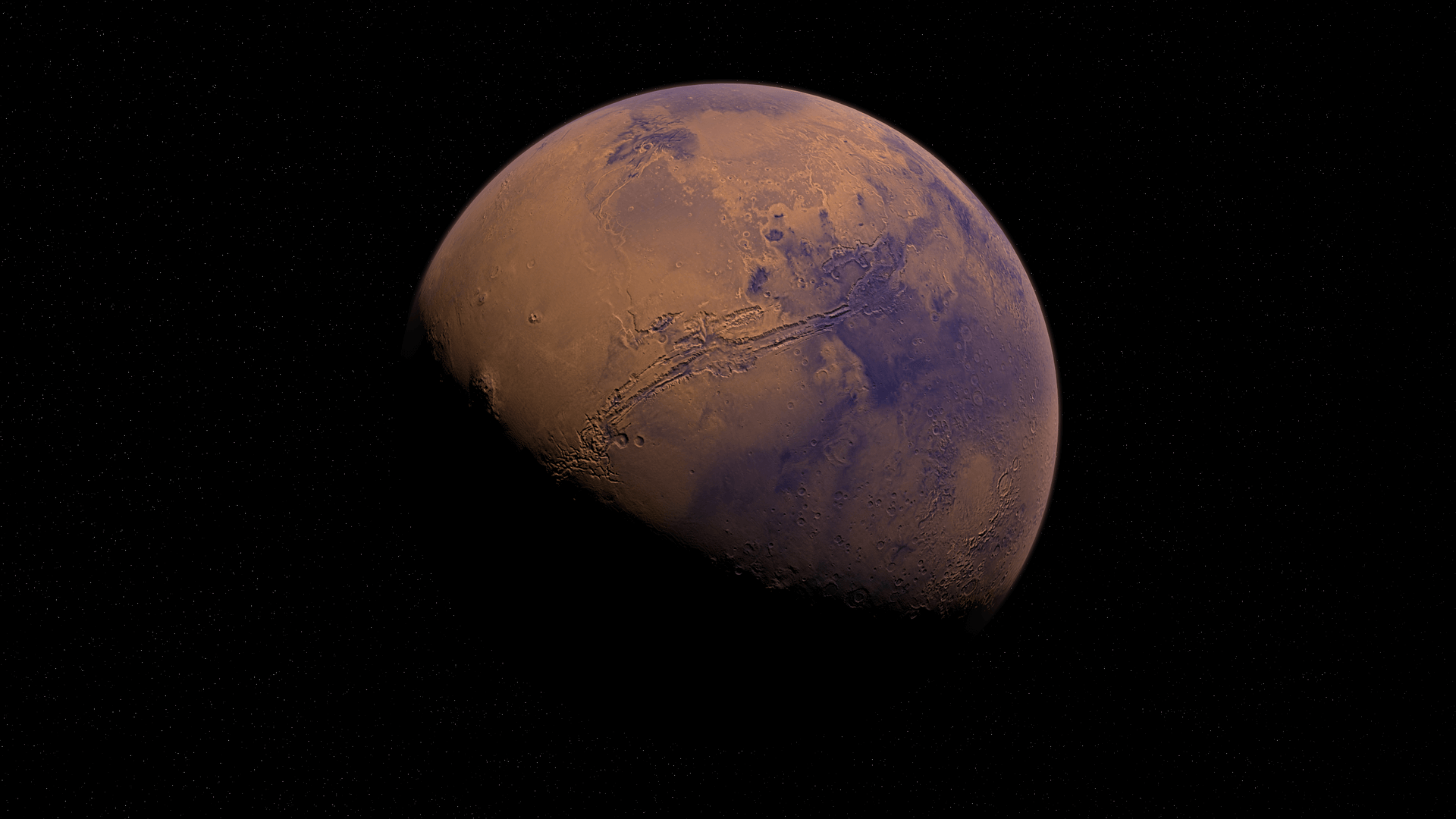Why Mars Started Being Dehydrated?
When summer arrives in the southern hemisphere of Mars, a “window” opens in its atmosphere through which water vapor can rise from the lower layers of the Planet’s gas envelope to the upper ones.
Most of this water vapor is carried by the winds to the North pole of Mars, where it settles on the surface in the form of ice, but some of the water vapor still breaks up and escapes into outer Space, gradually depriving the Red Planet of water reserves.
This unusual hydrological cycle is amplified by another feature of Mars — huge dust storms that cover the entire Mars at intervals of several years.The huge amount of dust that circulates in the atmosphere during such a storm makes it easier to transport water vapor to the upper atmosphere.
Research on the surface of Mars shows that about 3 billion years ago, this planet had a stable salty Ocean, comparable in volume to the Arctic Ocean on Earth.
What scientists say?
Where did all this water go? Scientists are still asking this question, because the volume of water that is currently in the polar caps of the planet is clearly not enough to form such a large ocean. Researchers from the University of Arizona have found one possible explanation for this phenomenon. Scientists suggest that it’s all about the destruction of water molecules in the upper atmosphere of Mars.
In their study, the scientists used data from the Maven probe, which has been orbiting the red planet since 2014 and measuring the composition of its upper atmosphere. Past observations using MAVEN and the Hubble space telescope have shown that Mars is losing water from the upper atmosphere at different rates depending on the time of year.
Now researchers have shown that when Mars is closest to the Sun, the Planet warms up, and water from the polar caps enters the atmosphere, and then escapes into Space. This happens once every Martian year, or approximately every two Earth years. Regional dust storms that occur on the Planet every Martian year, and global dust storms that occur about once every 10 years, lead to further heating of the atmosphere and evaporation of water.
The reasons for this loss of water have not been firmly established by science. But it is known that the concentration of heavy water on Mars is 5 times higher than on Earth. This fact, coupled with a new study, suggests that Mars lost water through the atmosphere, by evaporation, transportation to the upper atmosphere, dissociation and overcoming the gravity of Mars.
The Planet continues to lose its remaining water to this day due to the regional and global dust storms. “What’s unique about this discovery is that it provides us with a new pathway that we didn’t think existed for water to escape the Martian environment,” said Mehdi Benna, a Goddard planetary scientist.


